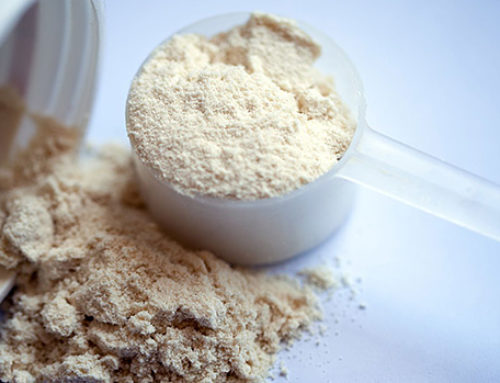The world of nutritional supplements can be pretty overwhelming. There are literally hundreds of different supplements being sold today, each with its own set of claims and supposedly miraculous health benefits. The truth is, most supplements either don’t do what they claim, or have such little effect that they are a total waste of money. Put simply, most supplements are full of bull.
Creatine Monohydrate is one of those supplements that sound too good to be true, but what is it? And can it be all that good?
Creatine Monohydrate is a natural substance already found within the muscles in the body and can also be found in meats and fish. Creatine can be made artificially within a laboratory and studies conclusively find that creatine boosts performance primarily for activities involving exercises with short burst of energy, such as weight lifting and sprinting. This extra push is critical for tearing muscles and therefore promoting growth through hypertrophy. Everyone knows that the harder you push, the harder you gain.
Put simply, creatine supplies energy to muscle cells.
It works as a phosphate resource that is used for regenerating ATP (adenosine triphosphate). You may remember from High School Biology that ATP is the main fuel for initial high-intensity exercise. When a muscle contracts, ATP loses phosphate in the process of creating energy. Creatine will then re-supply the lost phosphate, which is then used to create more ATP. Therefore the more creatine you have, the more ATP gets formed and the more energy there is for your muscles to lift weights.
Creatine Monohydrate supplementation is even more important for people that may have low doses in their body to begin with like vegans, vegetarians, and those that eat very little meat.
Pure creatine is one of the safest supplements available and side effects are rare. However mild stomach cramp can occur if not fully dissolved or diarrhea if a large dose is consumed (over the recommended 5-10g a day). Most clinical research has been performed on the basic pure ‘Creatine Monohydrate’ form, so a lot of the other creatine types (eg. Ethyl Ester, Liquid Creatine, hcl) don’t have the same scientific backing. Therefore basic pure Creatine Monohydrate is recommended (especially for a beginner) as it most likely to provide results and be a lot cheaper too. Try to find one that is 100% pure, which will prevent your body from being damaged by untested additives that are often pushed by the larger brands.



[…] Creatine is one of the safest supplements (www.rawbarrel.com/what-is-creatine-monohydrate/) available and side effects are rare. However mild stomach cramp can occur if not fully dissolved […]
[…] Creatine is one of the safest supplements (www.rawbarrel.com/what-is-creatine-monohydrate/) available and side effects are rare. However mild stomach cramp can occur if not fully dissolved […]
[…] Creatine is one of the safest supplements (www.rawbarrel.com/what-is-creatine-monohydrate/) available and side effects are rare. However mild stomach cramp can occur if not fully dissolved […]